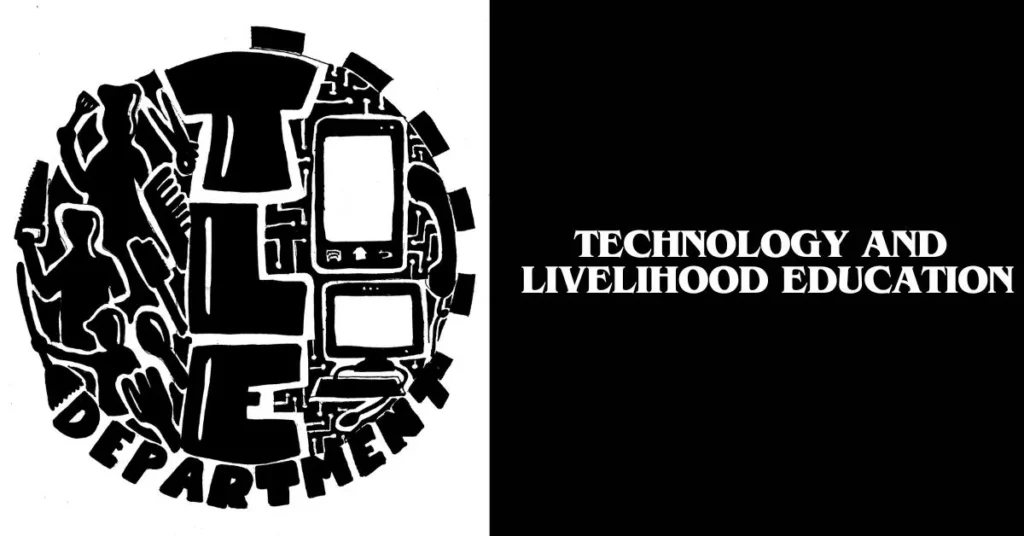In today’s rapidly evolving world, education systems are continually adapting to meet the needs of the modern workforce. One of the most significant developments in this area is Technology and Livelihood Education (TLE). This innovative approach combines technical skills with practical knowledge, equipping students with the tools they need to succeed in various industries. But what exactly is TLE, and why is it so important? Let’s explore the fascinating world of Technology and Livelihood Education and understand its impact on students and communities.
Understanding Technology and Livelihood Education:
Technology and Livelihood Education (TLE) is an educational program designed to provide students with practical skills and knowledge in various fields, such as information technology, agriculture, home economics, and industrial arts. The goal is to prepare students for the workforce by equipping them with the competencies needed for specific careers. Unlike traditional academic subjects, TLE focuses on hands-on learning and real-world applications, making it highly relevant in today’s job market.
TLE is typically offered in secondary schools and can vary depending on the country’s educational system and local industry demands. Students can choose from different specializations, allowing them to tailor their education to their interests and career goals. This flexibility ensures that TLE programs remain aligned with the evolving needs of the economy and society.
The Importance of TLE in Modern Education:
The significance of Technology and Livelihood Education cannot be overstated. In a world where technology is constantly advancing and job markets are becoming more competitive, having practical skills is essential. TLE addresses this need by providing students with valuable technical abilities and hands-on experience, which can enhance their employability and career prospects.
Moreover, TLE promotes lifelong learning and adaptability. As students engage in various practical tasks and projects, they develop critical thinking and problem-solving skills. These abilities are crucial in navigating the complexities of modern workplaces and adapting to new technologies and methodologies. In essence, TLE empowers students to be proactive learners and innovative thinkers, capable of thriving in diverse environments.
TLE Specializations: A World of Opportunities
One of the most exciting aspects of Technology and Livelihood Education is the wide range of specializations it offers. Whether a student is interested in coding, culinary arts, or carpentry, there is a TLE track that can cater to their passions and career aspirations. Let’s take a closer look at some of these specializations.
Information and Communication Technology (ICT):
In the digital age, proficiency in ICT is indispensable. This specialization focuses on computer literacy, programming, web design, and network management. Students learn to use various software and tools, preparing them for careers in the tech industry. With the demand for IT professionals continually rising, ICT offers a promising career path.
Home Economics:
Home Economics covers a broad spectrum of skills, including cooking, sewing, budgeting, and household management. This specialization is not only practical for personal life but also opens doors to careers in the culinary arts, fashion design, and hospitality management. Students gain valuable life skills that are applicable in many professional contexts.
Agriculture and Fishery Arts:
For students interested in the agricultural sector, this specialization provides knowledge in crop production, animal husbandry, and sustainable farming practices. It promotes an understanding of the importance of agriculture in food security and environmental conservation. Graduates can pursue careers in farming, agricultural research, and agribusiness.
Industrial Arts:
Industrial Arts focuses on skills related to carpentry, automotive repair, metalwork, and electronics. This specialization prepares students for technical and vocational careers, emphasizing the importance of craftsmanship and precision. The skills learned in Industrial Arts are in high demand in various industries, offering numerous job opportunities.
The Role of TLE in Community Development:
Beyond individual benefits, Technology and Livelihood Education plays a crucial role in community development. By equipping students with practical skills, TLE helps create a skilled workforce that can contribute to local economies. This, in turn, fosters economic growth and reduces unemployment rates.
Additionally, TLE programs often include community-based projects and initiatives, encouraging students to apply their skills in real-world settings. These projects can address local needs, such as improving infrastructure, enhancing agricultural productivity, or providing IT support. Through these activities, students gain a sense of responsibility and civic engagement, contributing positively to their communities.
Challenges and Solutions in Implementing TLE:
While Technology and Livelihood Education offers numerous benefits, implementing these programs can present challenges. Limited resources, inadequate facilities, and a shortage of trained instructors can hinder the effectiveness of TLE. However, there are several strategies to overcome these obstacles.
Firstly, partnerships between schools, industries, and government agencies can provide the necessary support and resources. Collaborations with businesses can offer students internship opportunities, while government funding can enhance facilities and training programs. Additionally, investing in teacher training and professional development ensures that instructors are well-equipped to deliver high-quality TLE education.
Secondly, integrating technology into TLE programs can enhance learning experiences. Online resources, virtual simulations, and digital tools can supplement traditional teaching methods, making education more accessible and engaging. By embracing technological advancements, TLE programs can stay relevant and effective.
The Future of Technology and Livelihood Education:
As we look to the future, the role of Technology and Livelihood Education is set to become even more significant. With the rapid pace of technological change and the growing demand for skilled workers, TLE will continue to evolve to meet these challenges. Innovations in education, such as personalized learning and competency-based assessments, will likely shape the future of TLE.
Moreover, the emphasis on sustainable development and environmental conservation will influence TLE curricula. Specializations in renewable energy, green technologies, and sustainable agriculture will prepare students to address global challenges and contribute to a more sustainable future.
Success Stories: Real-Life Impact of TLE
The impact of Technology and Livelihood Education can be seen in countless success stories worldwide. Students who have completed TLE programs often go on to achieve remarkable success in their chosen fields. For instance, graduates of ICT specializations have launched successful tech startups, while those in Industrial Arts have become skilled tradespeople and entrepreneurs.
These success stories highlight the transformative power of TLE. By providing students with practical skills and real-world experience, TLE empowers them to pursue their passions and achieve their career goals. The ripple effects of these individual successes can be felt throughout communities, contributing to overall social and economic development.
Conclusion: Embracing the Power of TLE
Technology and Livelihood Education is more than just a curriculum; it is a pathway to empowerment and success. By equipping students with practical skills and fostering a mindset of lifelong learning, TLE prepares them to thrive in a dynamic and ever-changing world. As we continue to embrace the power of TLE, we can look forward to a future where education is not just about academic knowledge but also about real-world skills and opportunities.
In a world where adaptability and practical skills are paramount, TLE stands as a beacon of innovation and hope. By supporting and expanding TLE programs, we invest in the future of our students, our communities, and our world.







